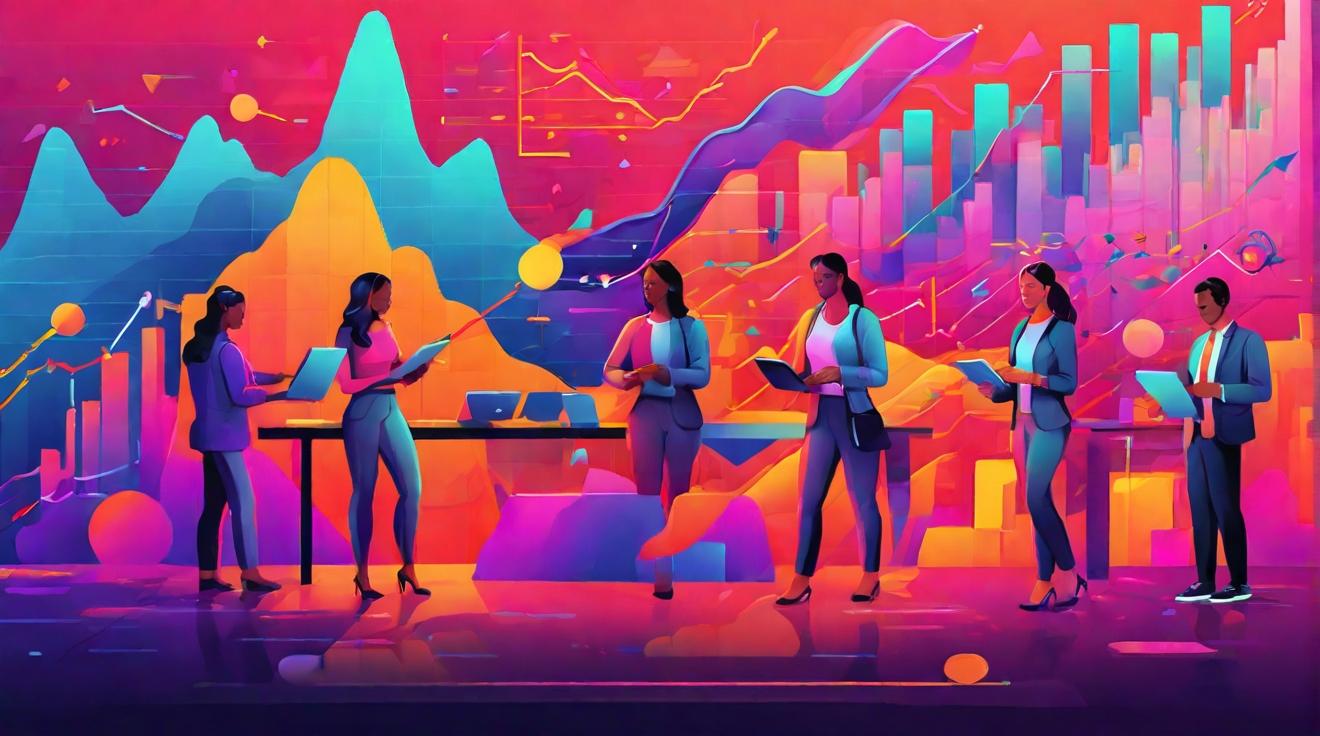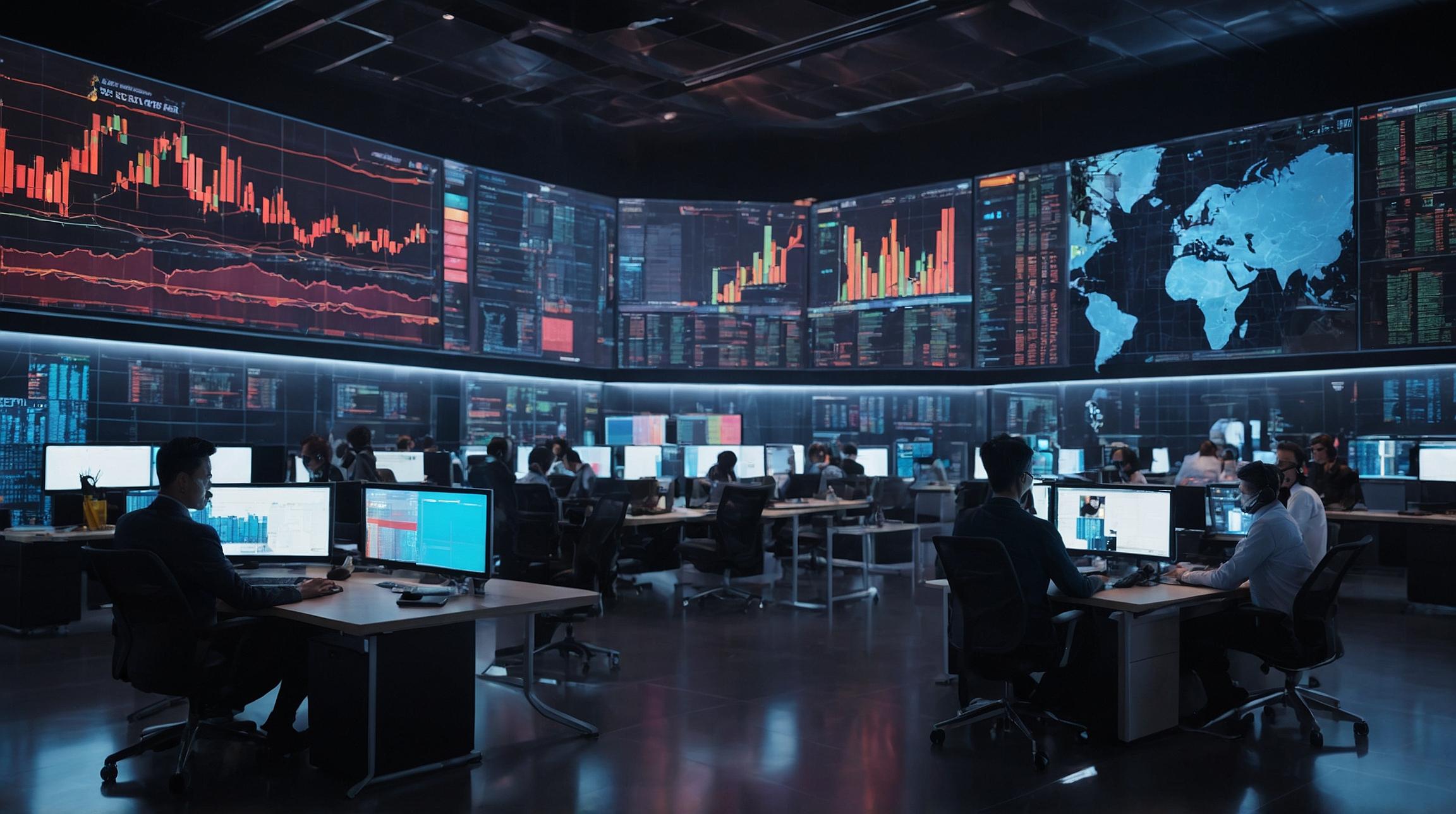The Link Between AI Use and Job Security Concerns
The use of artificial intelligence (AI) in the workforce has raised concerns among employees about job security. A recent CNBC SurveyMonkey Workforce survey revealed that 60% of workers who regularly leverage generative AI in their jobs worry about the potential impact it may have on their employment. This suggests a direct correlation between the use of AI and fears of automation replacing human workers. Interestingly, the survey also found that 72% of respondents who use AI recognize its ability to significantly increase productivity.
The Potential Impact of AI on Jobs
A report published by Goldman Sachs last year estimated that as many as 300 million jobs could be lost or diminished due to the rapid growth of AI. The investment bank predicts that the trajectory of AI growth will follow a similar pattern to past computer and tech products. Just as the world transitioned from giant mainframe computers to the modern-day technology we have today, AI is expected to reshape the world at an accelerated pace.
The Role of Automation in Today’s Workforce
Automation is already heavily deployed in today’s workforce. According to a survey by UKG, a human resources and workforce technology company, 78% of C-suite leaders reported that their companies actively use generative AI. Additionally, 70% of C-suite executives stated that enhancing the use of AI is a central priority for their businesses. Nearly half of the surveyed organizations reported increased financial returns from AI integrations, highlighting the benefits of automation in terms of efficiency and productivity.
Harnessing the Benefits of AI in the Workplace
AI has the potential to streamline workflows, increase efficiency, and optimize resources, leading to cost savings and improved quality of work. By offloading mundane and repetitive tasks to AI systems, workers can focus on higher-value activities, resulting in higher employee effectiveness and a more engaging and diverse workplace culture. AI tools can also aid in decision-making by analyzing large amounts of data, identifying patterns, and recommending optimal solutions.
However, it is important to note that AI technology lacks human wisdom and discernment, necessitating a level of human involvement. The goal of AI in decision-making is not complete automation, but rather to assist humans in making quicker and better decisions through streamlined processes and improved accuracy. Hugo Sarrazin, Chief Product and Technology Officer at UKG, emphasizes that automation typically involves automating tasks rather than replacing entire jobs.
Balancing AI with Human Involvement for Better Decision-Making
As AI continues to advance in the workplace, finding the right balance between automation and human involvement becomes crucial for decision-making processes. While AI can provide valuable insights and recommendations based on data analysis, human wisdom and intuition are still indispensable. The purpose of AI is to augment human decision-making, not substitute it entirely. By leveraging AI tools, workers can make more informed decisions faster, benefiting from streamlined processes and improved accuracy while still exercising their judgment and expertise.
In conclusion, the increasing use of AI in the workplace has sparked concerns among workers regarding job security. However, automation also brings significant benefits in terms of productivity and efficiency. As businesses embrace AI, it is important to find a balance between automation and human involvement to harness the full potential of AI while still valuing the unique capabilities of human workers.
Analyst comment
Positive: The use of AI in the workplace can significantly increase productivity and efficiency, streamlining workflows and optimizing resources. AI tools can aid in decision-making by analyzing data and recommending optimal solutions.
Negative: The use of AI has raised concerns about job security, with workers worrying about the potential impact of automation on employment. Reports estimate that a significant number of jobs could be lost or diminished due to the rapid growth of AI.
Neutral: Finding the right balance between automation and human involvement is crucial for decision-making processes. AI should augment human decision-making rather than completely replacing it. Businesses should leverage AI tools to make more informed decisions while valuing the unique capabilities of human workers.
Analyst’s prediction: As AI continues to advance, businesses will need to carefully implement and manage automation to ensure maximum benefits while addressing job security concerns. The market for AI technologies and solutions is expected to grow as organizations seek to increase productivity and efficiency.













